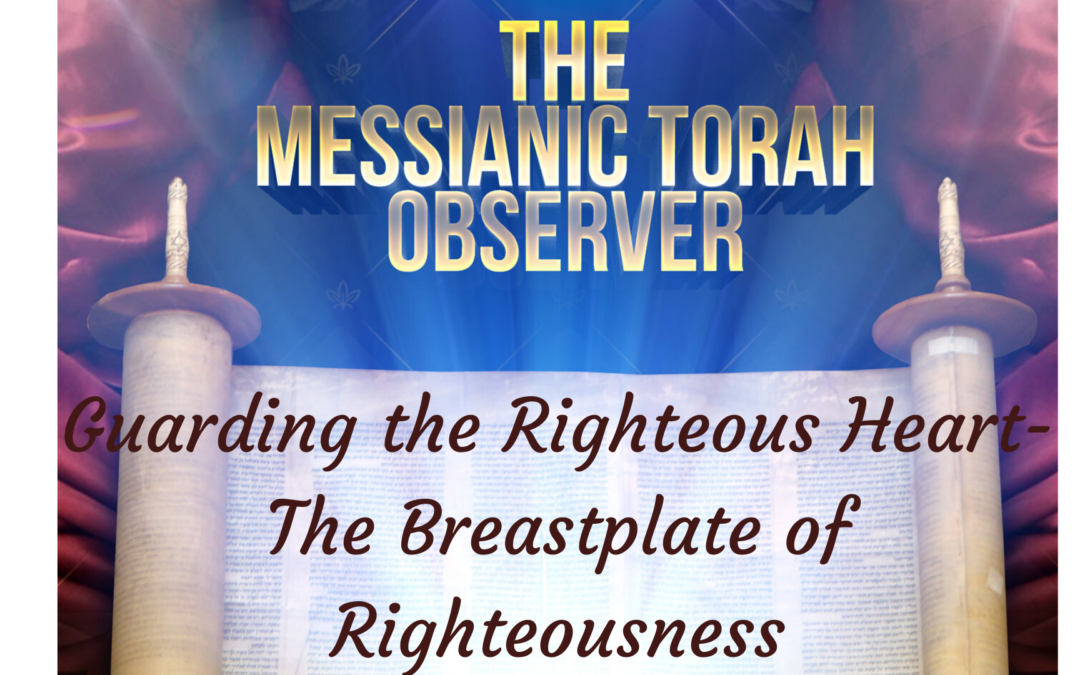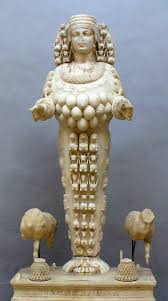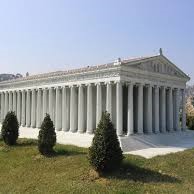Who do you pray to and worship and give thanks? Yeshua? YHVH? Both?
Is it Biblical to pray to and worship Yeshua as so many Christians routinely do?
In this installment of the Messianic Torah Observer, we will continue our review of the Book of Romans and Paul’s difficult and challenging passages by briefly looking at a rather innocuous passage: Romans 1:8.
Today’s discussion is entitled, “To Whom Do You Pray?”
And the biblical basis for our discussion this evening is Romans 1:8 which reads:
First, I thank my God through Jesus Christ for you all, that your faith is spoken of throughout the whole world (KJV).
The portion of this verse that I want us to focus on is the very first half of the verse:
I (Paul) thank my God through Yeshua Messiah for you all…
An Easy to Overlook Key Passage
Now, the average reader would gloss right over this verse and not think much about what Paul is saying here in this rather short statement. But truth be told, the apostle is saying, from a universal, doctrinal perspective a great deal to not just his Roman readers, but by extension us today in the set-apart Faith.
In order for us to understand Paul’s letter writing style as well as understand how the apostle viewed the Person and Office of Yahoshua Messiah, must unpack this 8th verse.
We Will Unlock the Full Meaning of this Passage
And by the end of our brief fellowship here today, you should have full understanding and knowledge as to whom we are to pray to.
I don’t wish to turn this into a long, drawn out discussion on the Trinity, or debate on the Divinity of Messiah. Nevertheless, the focus of this brief discussion is on the manner in which we pray. I specifically want to answer the question of: to whom are we to direct our worship and petitions to?
And what we will see in just a moment is that Paul was affirming an absolute and evergreen format for proper worship, prayer and thanksgiving to the Romans; and by extension us today in the set-apart Faith. For I believe the principle Paul puts forth here is a “normative” one; that is, although Paul is specifically addressing this principle to the Romans, this principle is also evergreen and applicable to all assemblies the apostle oversaw as well as all set-apart assemblies of Messiah today.
Romans 1:8 Is a Standard Ancient Middle East Letter Opening
Believe it or not, what we are seeing here, some 8-verses into his letter to the Romans, is Paul’s (and other ancient writers’) standard letter opening. In these forms of writing, the sender posts a prayer on behalf the one to whom the epistle is sent: “I thank my God through Yeshua Messiah for you all.
So we see here the apostle affirming his deep abiding love and affection for the Roman assemblies. And this is further reflected in Paul’s heartfelt claim that he upholds the assemblies in Rome in unceasing prayers.
We Express Our Love For One Another Through Ceaseless Prayer
Under our present spiritual dispensation, one of the ways we express our love for individual brethren is to pray without ceasing on their behalf. So as antiquated as this principle may seem to us today, the principle in biblical reality is something that we as set-apart believers in Messiah should be practicing throughout each and every day, as the Spirit leads.
Clearly Paul has a noteworthy appreciation for the Romans. So much so that the apostle leads off his letter with that acknowledgment.
Paul’s Love For the Assemblies Repeated
Paul expressed a similar admiration for the Assemblies in Thessalonica:
1 Thessalonians 1:8—For the word of the Lord has sounded forth from you, not only in Macedonia and Achaia, but also in every place your faith toward God has gone forth, so that we have no need to say anything.
J.K. McKee (Messianic Author and Teacher) suggests that Paul may have been asserting some degree of intentional exaggeration as it relates to him mentioning that knowledge of the Romans’ faith had circulated all over the world (NLT). McKee suggests that Paul was touching more on the Romans’ global reach and appeal maybe…it’s not clear what McKee means.
I do kind of get in a sense what McKee is saying regarding the embellishments that Paul seems to lavish upon the congregations he oversaw. Yet I wouldn’t necessarily perceive the apostle’s embellishments (assuming that they are indeed embellishments) as a negative or disingenuous.
Paul Was An Encourager of the Faithful
Paul was all about encouraging and lifting the hearts and souls of his followers to a place where they would have the potential to overcome their deficiencies and even expand on their positives. And I think that maybe this was what the apostle was trying to do here in verse 8–elevate the hearts and souls of the Romans as well as inform them that the eyes of the world (I.e., both the believing and unbelieving world) was upon them.
To Whom Do We Give Thanks and Direct our Prayers?
Here we also gain a valuable understanding as it relates to the mechanism of prayer. We direct our prayers to YHVH, through Yeshua our Messiah. This is affirmation that Yeshua and YHVH are NOT one and the same Person. I’ve personally come across a great many individuals in various Christian denominations throughout my life who direct their prayers to Jesus Christ, which biblically undermines the intermediary office of Messiah (Eph. 3:14; 1 The. 1:2; Phm. 1:4).
The Biblical Concept of Mediation
Messianic Torah teacher and scholar Tim Hegg refers to this prayer format and mechanism as “mediation.”
Essentially, mediation factors into our worship, praise and petitions the means by which the Father (I.e., YHVH) may be rightly approached (pg. 12). Thus, it is Yeshua HaMashiyach, acting as our “cohen hagadol” (I.e., our high priest), that provides us the means by which we can approach the Creator of the Universe with our praise, thanksgiving and petitions. Bottom line saints: It is through Yeshua that we are permitted to enter into the presence of the Almighty.
Hebrews 8:1—Now the point in what we are saying is this: we have such a high priest, one who is seated at the right hand of the throne of the Majesty in heaven.
Hebrews 9:24—For Christ has entered, not into holy places made with hands, which are copies of the true things, but into heaven itself, now to appear in the presence of God on our behalf.
No Other Means of Approaching the Almighty
Hegg goes on to assert that apart from our Cohen HaGadol, the Almighty has established no other method of approaching Him and His “Mercy Seat.” (cp. The model of the Levitical High Priestly role and office.)
It is indeed as a result of Yeshua’s redemptive work that we, Yah’s elect, go confidently before Yah’s throne of grace with our thanks and our petitions. Yeshua is the medium through whom Yah is to receive all worship, thanksgiving and through whom salvation came to the Romans.
Everything Comes Through the Mediatory Office of Yeshua Messiah
Everything regarding our Faith walk comes through the intermediary auspices of Yeshua. Everything. And this was the very thing that Father factored into His plan to redeem mankind unto Himself from the very beginning and to bring many sons and daughters into His holy, royal family.
1 Timothy 2:5—For there is one God, and one mediator (intermediary–NLT) between God and men (anthropos), the man (anthropos) Christ Jesus…
Mesites–Mediation or Intermediator?
Traditionally the word μεσίτης, mesites is rendered “mediator” in most modern English translations. In reality, Yeshua was not a mediator, at least not in the way we westerners understand the process of mediation and the role of a mediator.
A better English rendering of “mesites” is “intermediary” which accurately factors into the meaning of the term the understanding that Yahoshua is the only Being able to go between man and the Almighty–the Creator of the Universe–to make and restore peace between YHVH and man; and to provide mankind the only means by which he/she may have a true and substantive relationship with YHVH.
1 Timothy 2:5 Spin-Off Passages
Two things should jump out at us when reading 1 Timothy 2:5:
(1) Paul distinguishes between YHVH (I.e., there being One God–hearkening back to Deuteronomy 6:4, 5–the Shema) and Yeshua Messiah (I.e., the absolute intermediary between Yah and man); and
(2) the fact that Paul emphasizes the humanity of the intermediary, Yeshua HaMashiyach. (We won’t touch upon the humanity aspect of this verse here so as to no dilute the focus of the discussion and for the sake of time.)
Hebrews 8:6—But now hath He (Yeshua) obtained a more excellent ministry, by how much also He is the mediator of a better covenant, which as established upon better promises.
Hebrew 9:15—And for this cause He (Yeshua) is the mediator of the new testament, that by means of death, for the redemption of the transgressions that were under the first testament, they which are called might receive the promise of eternal inheritance.
Hebrews 12:24—And to Jesus the mediator of the new covenant, and to the blood of sprinkling, that speaketh better things than that of Abel.
The Controversy and Challenge of Philippians 2:11
Many point to Philippians 2:10,11 as biblical proof that Yeshua and the Almighty are one and the same Person:
That at the name of Yeshua every knee should bow, of things in heaven and things in earth, and things under the earth; And that every tongue should confess that Jesus Christ is Lord, to the glory of God the Father.
The Book of Yahweh reads–beginning at verse 4:
Let every one of you look out not only for your own interests, but also for the interests of others. Let this mind be in you, which was also in Yahshua Messiah, Who, being in the form of Yahweh, did not think it was something to be seized upon to be equal with Yahweh; But abased Himself, taking the form of a servant, made like men being born. And being found in fashion; appearance and conduct, like a man, He humbled Himself and became obedient unto death: the death of the sacrifice on the stake. Because of this, Yahweh also has highly exalted Him, and given Him a Name which is above every Name; That in the Name of Yahshua, every knee in heave, on earth, and under earth, must bow, and every tongue must confess that Yahshua Messiah is King, to the glory of Yahweh the Father.
Missing Distinction Between the Creator and the Mediator
Unfortunately, folks within and without our Faith community fail to recognize the distinction between the Creator of the Universe and the Mediator/Intermediary Yahoshua HaMashiyach. These put forth the erroneous doctrine that Yeshua and YHVH (the Creator of the Universe) are one and the same Person. Thus passages akin to Philippians 2:11 prove that the two are actually the self-same Person. Thus when we pray, we pray to Yeshua, not necessarily to YHVH.
Dr. Stephen Pidgeon’s Take on Philippians 2:11
Dr. Stephen Pidgeon, the big guy over at Cepher Publishing Group; the LLC that publishes the Cepher Bible, took extreme liberties with Philippians 2:11 and reworded it to read:
“And that every tongue should confess that Yahuah is Yahusha HaMashiach, to the glory of Yah the Father.”
Clearly Dr. Pidgeon’s intentional rewording of this key text has completely altered the original understanding and interpretation of this Pauline passage. When questioned in the past why he took such liberties with Philippians 2:11, Dr. Pidgeon pointed to Isaiah 45:22-25 as proof that Yeshua has to be YHVH Himself. The abridged passage reads:
Look unto Me, and be ye saved, all the ends of the earth: for I am God, and there is none else. I have sworn by myself…that unto me every knee shall bow, every tongue shall swear.
Philippians 2 and Isaiah 45 Contrasted and Compared
Paul expends precious parchment and ink prior to verse 10 and 11 telling the Philippians that Yeshua abased Himself for the service of His Father, not seeking whatsoever to be on par with His Father. He took on the appearance and conduct of a man in humble fashion who was obedient to His death to the Will of the Almighty. And because He remained obedient unto death, Father highly exalted Him and gave Him a Name (not so much the identity by which we verbally and aurally know our intermediary; but Name from the perspective of His presence; His Person; His Office; and most importantly, His authority) that is above all names.
A More Accurate Approach to Philippians 2
Dr. Pidgeon’s liberal interpretation and accompanying rewording of Philippians 2:11 in no way is supported by Isaiah 45:22-25. The simple fact of the matter is that Isaiah was reporting that YHVH is the only Being to whom we must worship, praise and offer our petitions to. Paul then takes Isaiah’s passage some 700 or so years later and inserts Yeshua intermediary office and work into it to bring the Philippians into a complete understanding of what glorifying the Almighty will ultimately look like. For according to Paul, there’s coming a time when every knee will bow and every tongue confess that Yeshua is King/Master/Messiah. In so doing bringing the greatest glory and honor to the Almighty man has ever known. Halleluyah.
_______________________________________________________________________
Other Points of Contention to the Mediatory Office of Yeshua
Many proponents of Yeshua and YHVH being one and the same Person also point to (1) the Shema, (2) Yeshua’s statement of unity with His Father; and (3) John’s proses suggesting this to be true.
Unity Between Father and Son
As it relates to our Master’s statement of unity with His Father in John 10:30 and 17:22:
John 10:30—I and my Father are one.
John 17:22—And the glory which thou gavest Me I have given them; that they may be one, even as we are one…
Despite most Greek lexicons being Trinitarian-based in their content leaning, most of the ones I consulted strangely take the position that Yeshua’s statement of unity with His Father in these passages are just that: statements of unity. In other words, Yeshua was simply stating that He was closely united with His Father in will and or spirit. He was in no way asserting that He and His Father were one and the same Person. Besides, if Yeshua was in fact YHVH the Creator, when He prayed, who was He praying to? Himself? I can tell you, I’ve never gotten a reasonable answer to that question.
Yeshua Never Claimed to be YHVH
And the other thing I would add to this quagmire is simply this: During the short time Yeshua ministered here on earth, if He was in fact YHVH, the Creator of the Universe, why didn’t He reveal that about Himself to them? The truth of the matter is that He never made any mention to such an understanding. In fact, He simply affirmed Peter’s acclamation that He was the Messiah, Son OF THE LIVING GOD (Matthew 16:16). Not YHVH. Son of the Living God.
The Biblical Concepts of One
The Greek concept of “One” (I.e., ‘eis) denotes unity and or togetherness which is consistent with our Master’s statement about He and His Father. Paul applies this very same concept to the Body of Messiah:
Romans 12:5—So we, being many, are one body in Christ, and every one members one of another. (Paul here is obviously talking about unity in the Body of Messiah. That unified Body is made up of many members.) Cf. 1 Corinthians 10:17; 12:12.
1 Corinthians 3:8—Now he that planteth and he that watereth are one: and every man shall receive his own reward according to his own labour. (In addressing divisions in the Corinthian Assemblies, the apostle in this passage informs the Corinthians that the evangelistic efforts of Apollos and himself, although conducted separately, serve a single, united purpose of bringing the Corinthians to Faith.)
The Shema and Yah’s Oneness
Now, as it relates to the Shema, many brethren, within and without our Faith, go to great lengths to point to the Shema as proof that Yeshua and the Creator are one and the same Person:
Deuteronomy 6:4—Hear, O Israel: The LORD (YHVH) our God (our Elohim) is one LORD (YHVH).
These Messianic Trinitarians or Binarians contend that the LORD (YHVH) here in the Shema is a single Entity in 3-Persons or who is exercising 3-offices in the “great work of redemption–Father-Son-Holy Ghost).
The Hebrew concept of YHVH as expressed in the Shema is simply that Yehovah is NOT a multiplicity of gods like the pagan gods of the nations in Canaan. There is only one, true and living God and His Name is YHVH. There is no other God Almighty. Period. There are created beings out there that call themselves or have been elevated by men to some level of god status. But these are all created beings.
And the most baffling thing to me is that Messianics, of all people, you’d think would have a proper understanding of who Yeshua truly is. Yet, Messianics in great numbers, ascribe to the concept that Yeshua and YHVH are one and the same person, erroneously pointing to the Shema as proof of this doctrine.
Summary and Call to Action
Bottom line saints: it falls to each of us to approach the Almighty in the manner He established from the foundations of the earth. We saw this as an example with the Levitical and Tabernacle system back in the day. Father established a hard and fast method by which His people would approach Him and come into a right relationship with Him. There was only one way. And that way was spelled out to us through Yah’s Torah.
Today, the way that we come into the presence–the Throne–the Mercy Seat of the Almighty is strictly through the Name (the authority, Person, work) of Yeshua. Thus, Yeshua is not the Almighty. Yeshua is our intermediary whom we must Shema and respect and obey.
So when we thank Yah for what He’s done for us; when we petition Yah for things and on behalf of the brethren; when we worship and praise Yah from the depths of our souls, we must do it in the Name of Yeshua HaMashiyach.
Thanking, praising, worshiping and petitioning Yah in Yeshua’s Name is simply having the divine opportunity to come into the presence of Yah through the authority, presence and Person of Yeshua: all that Yeshua represents, has done and is doing for us in the heavenly Mishkan today. When it comes to our interactions with YHVH our Elohim, we do it all through Yeshua.
But Yeshua is not the Person we praise, thank nor worship: It’s our Heavenly Father, YHVH our Elohim.
Check out my discussion on the Divinity of Yeshua.




